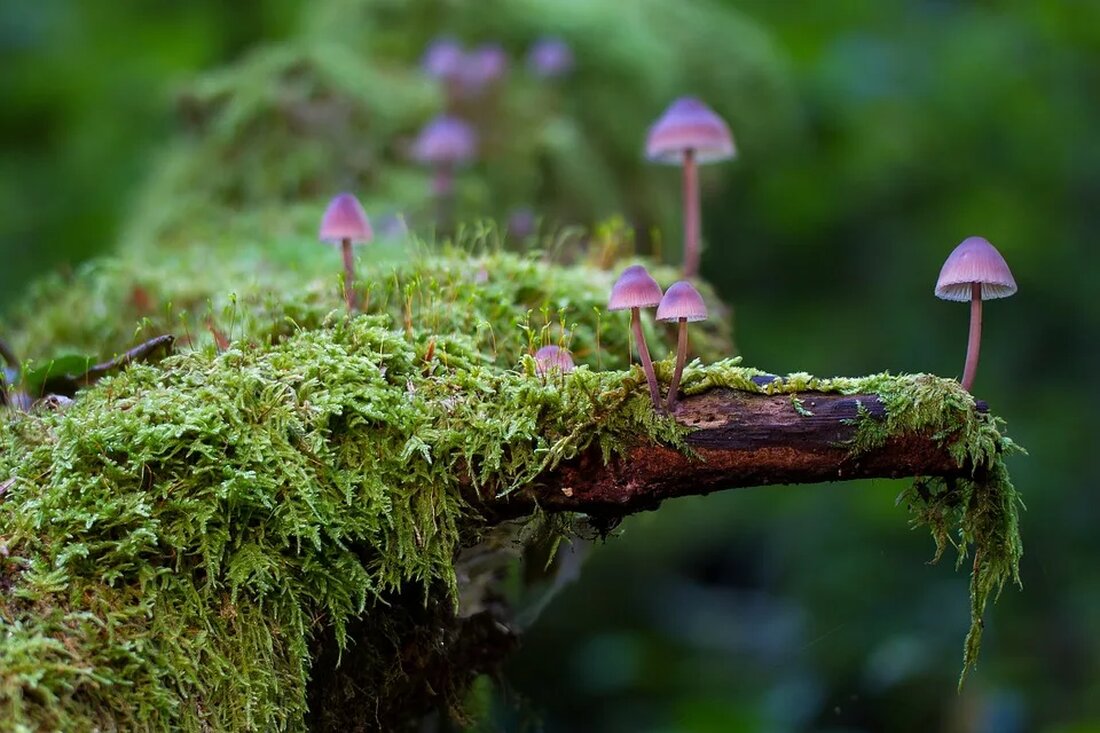How fungi contribute to the decomposition of biomass
Fungi are fascinating organisms that play a crucial role in the earth's natural cycle. They have been present on our planet for billions of years, long before the first tree grew or the first dinosaur stumbled around. But how do fungi contribute to the decomposition of biomass and why is this important? This article will introduce you to the amazing world of fungi and highlight their important role in our ecosystems. The fantastic world of mushrooms The importance of mushrooms Mushrooms belong to a royal class of organisms that differ from plants and animals. They reproduce by spores instead of seeds and contain...

How fungi contribute to the decomposition of biomass
Fungi are fascinating organisms that play a crucial role in the earth's natural cycle. They have been present on our planet for billions of years, long before the first tree grew or the first dinosaur stumbled around. But how do fungi contribute to the decomposition of biomass and why is this important? This article will introduce you to the amazing world of fungi and highlight their important role in our ecosystems.
The fantastic world of mushrooms
The importance of mushrooms
Fungi belong to a royal class of organisms that differ from plants and animals. They reproduce by spores rather than seeds and do not contain chlorophylls like plants do to convert sunlight into energy. Instead, they generate their energy by breaking down organic matter, particularly dead plant and animal litter.
Of the estimated 1.5 to 5 million fungal species worldwide, only around 5% have been scientifically described. Some are edible and have culinary value, such as mushrooms and shiitakes, others have medicinal uses, such as penicillin, which is derived from a specific strain of mushroom. Still other species are poisonous and can cause serious health problems or death.
The unique biology of fungi
Mushrooms are made up of tiny, thread-like cells called hyphae, which together form a mycelium - a branching network that is the actual "body" of the fungus. Typically the mycelium is underground or hidden within the substrate on which the fungus grows. The visible parts of the mushroom that we often see and refer to as "mushrooms" are actually just the fruit heads that are used to produce and release spores.
The fungus's thick-walled spores can spread by wind, water, or other animals and people, migrating to new areas where they germinate and form a new mycelium when conditions are favorable. Spores are extremely resilient and can endure extreme environmental conditions that would kill most other life forms.
The role of fungi in the decomposition of biomass
decomposition
Decomposition is the process by which organic substances are broken down and broken down into their basic components. Every living thing on Earth eventually dies and is reintegrated into the soil to create a continuous cycle of life and death. Fungi are one of the few organisms that can break down complex organic compounds such as cellulose and lignin, the main components of plant tissue and wood.
Mushrooms as decomposers
Fungi are a key player in the global carbon cycle due to their ability to break down complex organic materials and release the nutrients contained in the materials. These released nutrients are taken up by the soil and absorbed by plants, which use them to produce food and oxygen.
The breakdown of lignin by fungi
An example of biomass degradation by fungi is the decomposition of lignin, one of the main components of plant cell walls. Lignin is an extremely durable material - it is resistant not only to bacterial degradation, but also to most other fungi. Only a few fungi, such as white rot, are able to effectively break down lignin. They do this by producing specialized enzymes that oxidize the complex lignin molecule, thereby making it accessible for degradation.
Importance of fungi for the environment and climate change
Soil formation and health
By breaking down biomass and converting organic materials into nutrient-rich soils, fungi make a significant contribution to soil formation and health. The humus produced by fungal activity improves soil structure and water holding capacity, promotes plant growth and increases soil biodiversity.
Carbon fixation and climate change
Fungi play a crucial role in carbon storage and therefore also in climate change. While plants absorb carbon dioxide (CO2) from the atmosphere and convert it into biomass, fungi release carbon back into the atmosphere in the form of CO2 when they break down biomass. This process works in a finely balanced balance. However, there are fears that climate change could disrupt this balance and lead to an accelerated release of carbon.
Conclusion
Fungi are essential for the functioning of our ecosystems. They contribute to the decomposition of biomass and play an important role in many natural processes, including soil formation and carbon storage. They are living evidence of the complexity and balance of the natural world, and we therefore have a responsibility to ensure their survival. The study of fungi and their contribution to biomass decomposition is not only fascinating, but also important for our understanding and promotion of our Earth's biodiversity.

 Suche
Suche
 Mein Konto
Mein Konto
